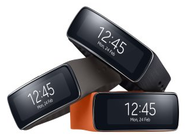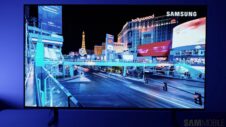The Galaxy Gear, Samsung's first smart wearable device, ran Android, while the Gear 2 saw the company switch to its in-house OS Tizen. Well, with the Gear Fit, Samsung has made yet another operating system switch – according to Samsung officials, the Gear Fit uses a real-time operating system (RTOS) instead of something like Android or Tizen. An RTOS is simpler than standard operating systems and is dedicated to a specific set of tasks with the ability to process data without any delays, and according to Seshu Madhavapeddy, senior vice president of product and technology at Samsung Telecommunications America, this has allowed the company to eke out three to four days of battery life from the Gear Fit while using a smaller amount of memory and a less powerful processor than the Gear 2 smartwatch.
Considering the Gear Fit is focused at functionality like heart rate sensing and step counting, an RTOS will offer the advantage of calculating and displaying more accurate and timely data. However, this also means that developers will not be able to make third-party apps for the Gear Fit, as there won't be a software development kit for the basic OS ticking away inside. Whether that actually affects the end-user remains to be seen – the Gear Fit is a fitness tracker that doesn't need to act like a smartwatch or smartphone, so the lack of apps won't exactly put off anyone as long as it performs its intended tasks well.







